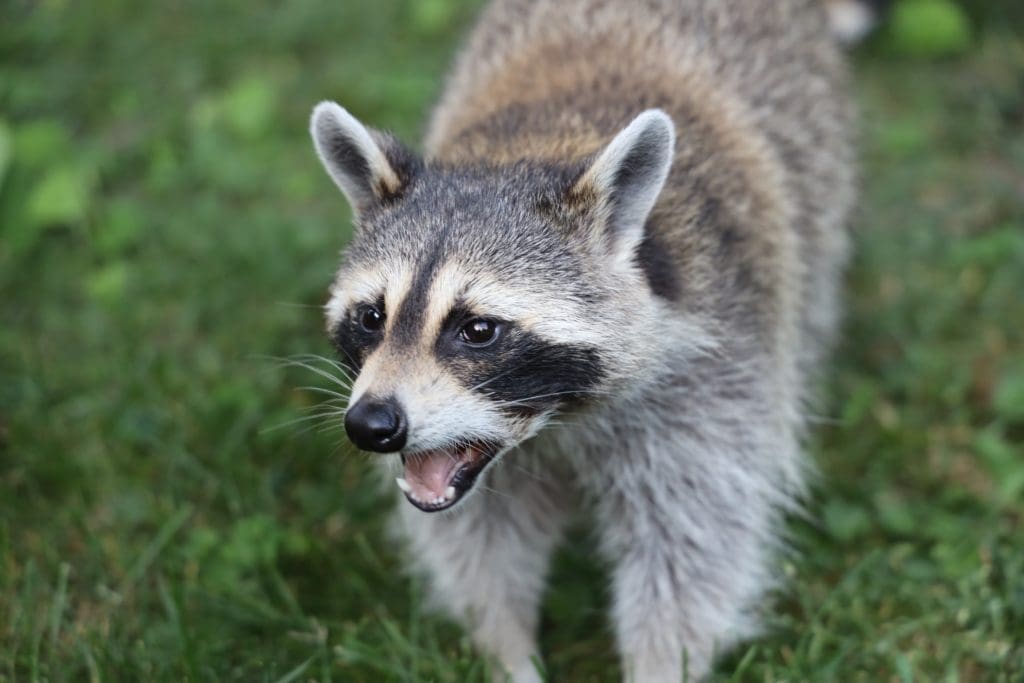

Health officials want people in the Bear area to seek treatment if they or their animals were in contact with a rabid raccoon. Photo by Richard Burton/Pexels
The latest animal in Delaware to test positive for rabies is a raccoon found near Frazer and Denny Roads in Bear.
The raccoon was captured and tested for the virus after it bit and scratched a human on Nov. 7.
The victim who was bitten and scratched has begun to be treated with rabies vaccine to avoid the deadly illness.
The state is now asking anyone else who may have come in contact with the animal to call their doctor and the state rabies program at 302-744-4995.
The Division of Public Health is also encouraging property owners in the areas to contact their veterinarians if it is possible for the pets to have come in contact with the raccoon.
DPH recommends that individuals take the following steps to prevent rabies exposure:
- All dogs, cats, and ferrets 6 months of age and older are required by Delaware law to be vaccinated against rabies by a licensed veterinarian.
- Pet owners can reduce the possibility of pets being exposed to rabies by keeping them indoors and not letting them roam free. It is especially important for pet owners who do allow their cats to roam outdoors to vaccinate their pets.
- Do not touch or otherwise handle wild or unfamiliar animals, including cats and dogs, even if they appear friendly.
- Do not keep your pet’s food or water outdoors; bowls can attract wild and stray animals.
- Do not feed feral animals, including cats, as the risk of rabies in wildlife is significant.
- Spaying or neutering your pet may reduce the tendency to roam or fight and, thus, reduce the chance they will be exposed to rabies.
- Keep your garbage securely covered.
- Consider vaccinating livestock and horses, as well. It is recommended to consult with your private veterinarian if you have any questions regarding whether your animal(s) should be vaccinated against rabies.
- Since Jan. 1, 2021, DPH has performed rabies tests on 176 animals, 18 of which were confirmed to be rabid, including one dog, one deer, one fox, one cow, two skunks, three cats, six bats and three raccoons, including this most recent positive case. DPH only announces those rabies cases for which it is possible the animal had unknown contacts with additional humans or pets.
Rabies is an infectious disease affecting the nervous system of humans and other mammals. Infection can occur through the bite or scratch of an infected animal or if saliva from such an animal gets into the eyes, nose, mouth, or an opening in the skin.
Rabies in humans and animals cannot be cured once symptoms appear. Therefore, if a human has been exposed, and the animal is unavailable to be quarantined or tested, DPH recommends that people receive post-exposure treatment, a series of four vaccinations, as a precautionary measure.
If you encounter a wild animal behaving aggressively, it is recommended you contact the Delaware Department of Natural Resources and Environmental Control’s (DNREC) Wildlife Section at 302-739-9912 or 302-735-3600.


Charlie Megginson covers government and politics for Delaware LIVE News. Reach him at (302) 344-8293 or [email protected]. Follow him on Twitter @cmegginson4.
Share this Post

